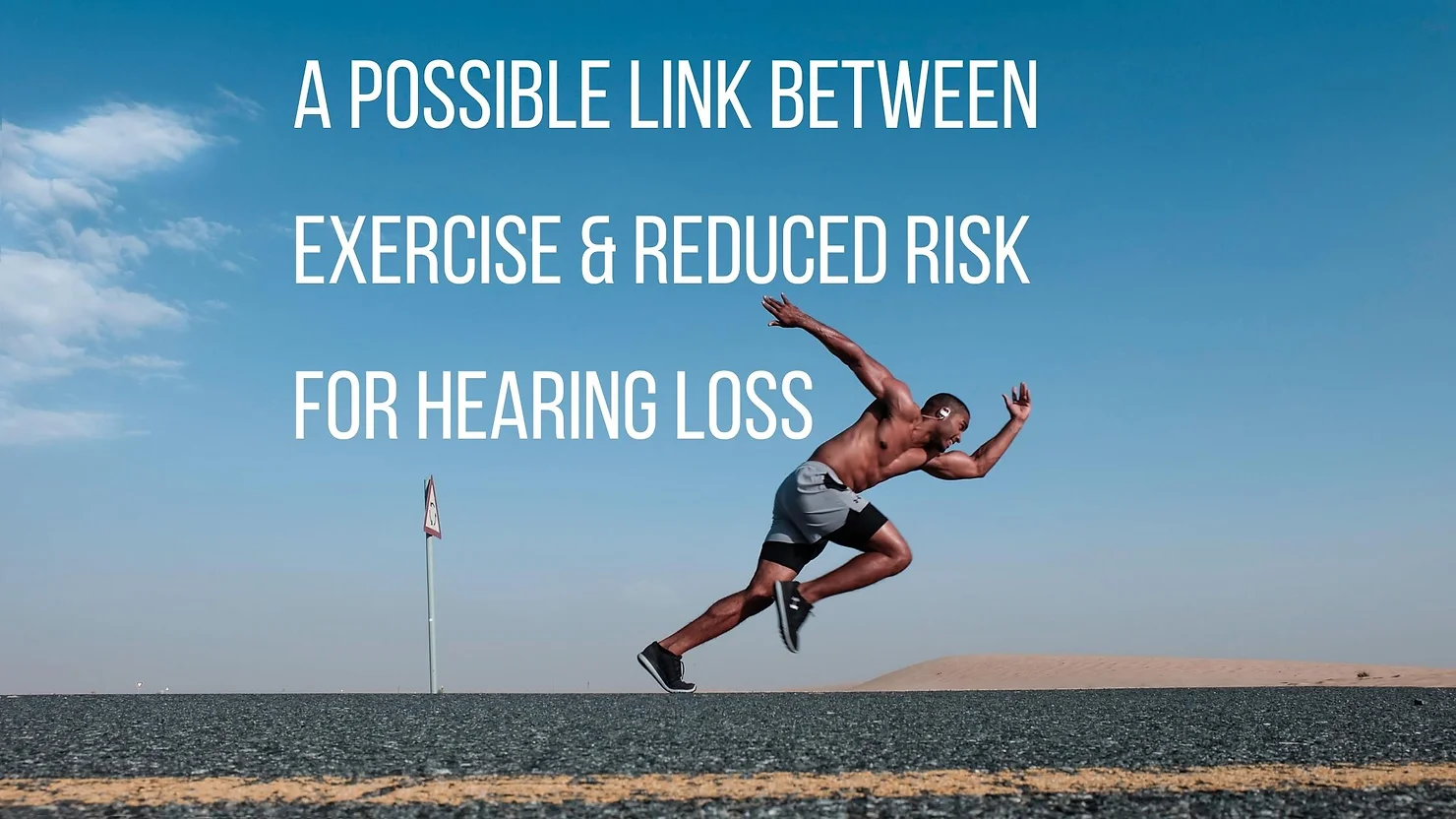
Cardiovascular exercise helps strengthen your heart and lungs, helps keep you ready for action, reduces stress levels and decreases daily fatigue. Now, a surprising recent study suggests that exercise can protect your hearing health, as well.
Using mice to understand the link between exercise & hearing Loss
A 2016 study published in the Journal of Neuroscience focused on experiments on mice and their hearing capacity. The study used mice because of their many similarities to humans such as anatomy, physiology, and genetics. They focused on the hearing abilities of mice who were very active, vs mice who were less active and found that there were more instances of hearing damage in mice who were less active. To be more exact they examined the tiny structures within the inner ear such as the cochlea and the tiny hair-like cells within. These same structures are present in human ears and are responsible for transmitting sound information from the ear to the brain. The researchers also noted damage in the strial capillaries of the cochlea in sedentary mice. These capillaries are key in delivering oxygen across the hearing system. This was notable because the cochlear system requires a healthy and constant source of oxygen-rich blood in order to operate and send sound to the brain for processing. In addition, the researchers observed that when compared to mice who exercised, the less active mice experienced an average of 20% hearing loss over their lifetime.
Research suggest that regular exercise supports healthy hearing
While it was clear that damage leading to hearing loss was much more substantial in mice who didn’t exercise, they found that with active mice, 95% had healthy hearing! This was directly connected to healthy inner ears and the many tiny structures which deliver sound to the brain. Regular exercise appeared to lessen inflammation in the blood vessels and supported healthy hearing for much later in the lives of senior mice. The strong support exercise provided for the hearing health in mice led the researchers to believe that regular exercise could protect the hearing structures in active humans as well.
Tracking the hearing of active seniors
Another study held at The Johns Hopkins University studied the exercise habits of seniors. They found that older adults who practiced low to moderate exercise activities three hours a week or more, on average scored much higher on hearing tests than seniors who were generally inactive. The researchers concluded that spending just 30 minutes a day to exercise can have beneficial effects on almost all aspects of your health including your hearing. The researchers believe this is due to the fact that exercising promotes increased blood circulation throughout your body while invigorating oxygen circulation simultaneously. The result of regular exercise is reduced inflammation throughout the body. When the body becomes too inflamed it can damage the stereocilia, and capillaries responsible for sending sound information to the brain.
Finding the cardiovascular exercise that works for you
If you are looking for examples of cardiovascular exercise, some include hiking, jogging, cycling, rowing, running, dancing, and elliptical training. Everyone enjoys something different or maybe even a combination of many cardiovascular activities is right for you. Find one that makes you feel good, inspired, and is in line with your physical ability. Don’t try to strain yourself. Most importantly remember that any activity which increases your breathing and heart rate is cardiovascular. Be sure to start each session with at least 5 to 10 minutes to acclimate to the movement to allow your system to improve blood flow to your muscles. It is common to start to look forward to a daily exercise routine as it elevates mood and may help with focus and emotional health throughout the day.
Safe listening practices
Many people enjoy listening to music while exercising, as it helps with motivation. However, it is important to practice safe listening practices while you enjoy your favorite tunes. Headphones and loud music can easily surpass decibel limits of 100 dB or more. This can cause noise-induced hearing damage in just 15 minutes — only half of a recommended cardiovascular workout routine. Make sure to keep the volume of the music you enjoy to no higher than 60% of its potential volume while you enjoy your exercise. For more on hearing loss, schedule a hearing exam with us. We can explore your hearing health and find the best treatment for you.
